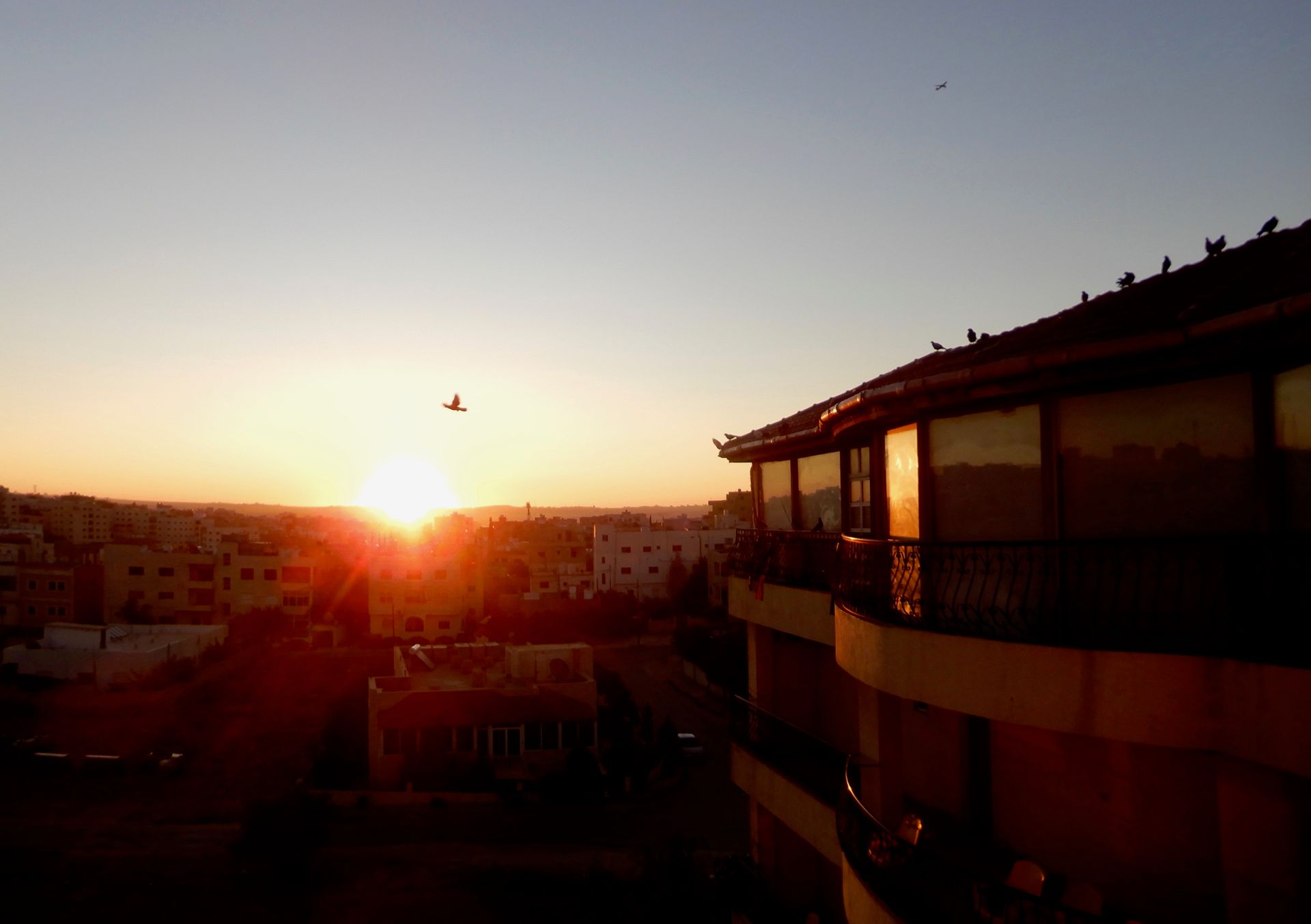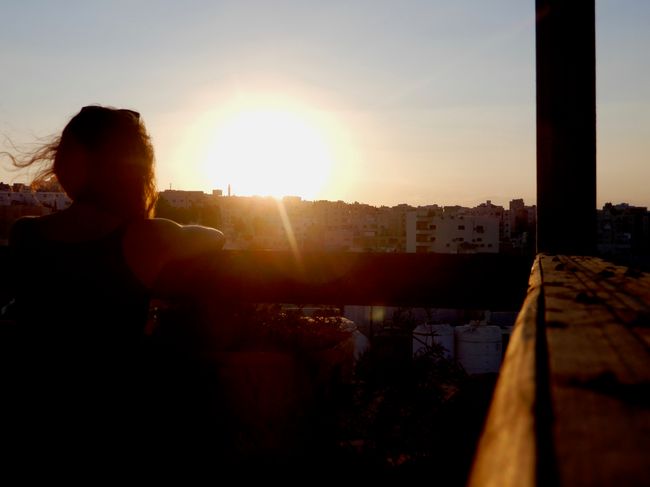Secondary residence Manara
Argitaratu: 26.01.2020
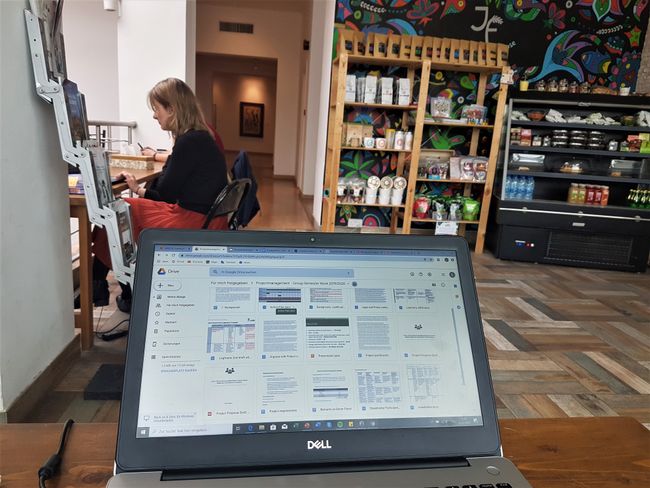
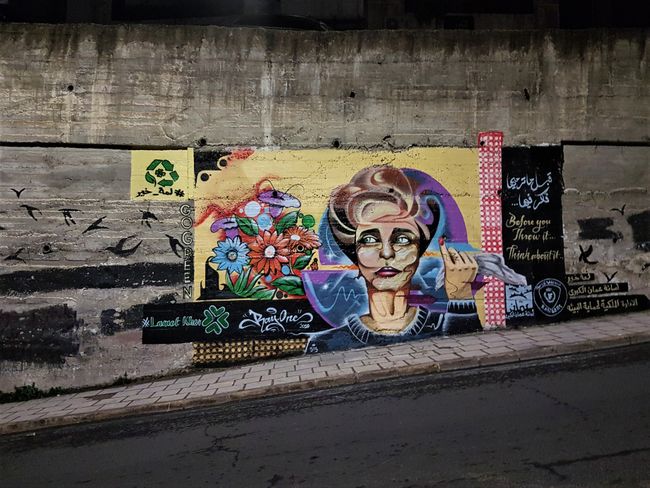
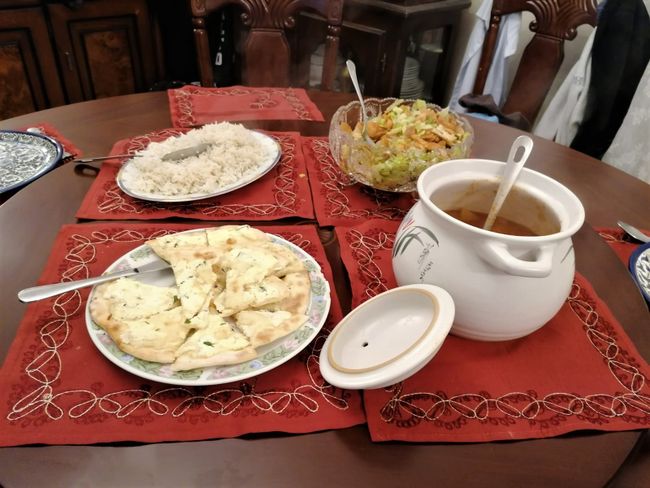
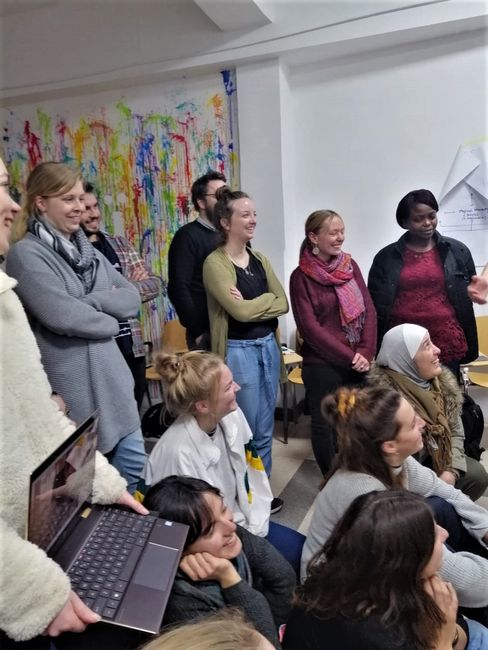
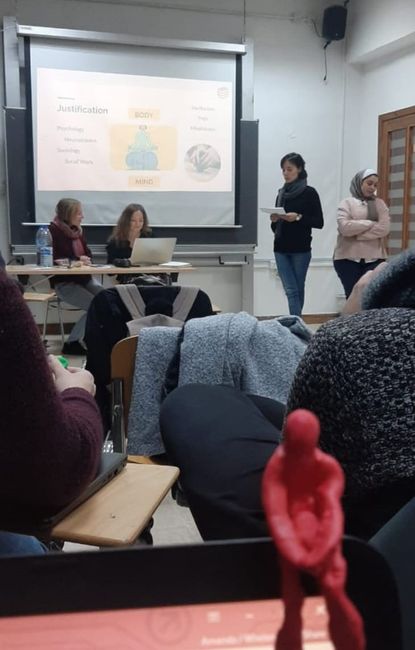
Harpidetu Buletinera
January 3 - 17
The simple reason that I'm summarizing two weeks is because of university. The workload we had during this time to complete all assignments and presentations on time is really hard to put into words. I have to admit that it's partially my fault - I didn't think about university at all during the three weeks of traveling before. Something I definitely don't regret. However, the last two weeks were really tough. Emotionally, mentally, and physically (there was absolutely no time for sports). Between our last lectures, first presentations, Tarabot, and Arabic lessons, my life mainly revolved around Manara, and on their day off, Jungle Fever.
Nevertheless, working at Manara is associated with positive memories despite the stress. As a popular place for students in Amman, we saw each other there every day from our Social Work program. My favorite place was the cozy sofa on the first floor with a view of Amman through the large windows. Usually, all the other familiar faces gathered around there, sharing the same hardship. And shared hardship is known to be only half the burden. In addition, the friendly waiters, who have also greeted me when they see me outside of Manara, and Anas, who was also regularly there, always provided a comforting chat during breaks. Here are a few highlights that happened in between:
January 8. In the last regular lecture of our subject "Social work with minors and women," Obada visits as a guest speaker. He is from Syria, in his mid-20s, and already in a wheelchair. During the war in Syria, his legs were shot by a sniper. Until the day it happened, he led a beautiful, fulfilling life and loved playing soccer. Day X changed his life. However, he is far from being a miserable person in front of us. Obada is a cheerful and self-confident young man. After initially doing everything to get rid of the wheelchair and all the doctors confirming one by one that he will never be able to walk again, he accepted his fate. He worked a lot with a motivation trainer and is now sitting in front of us as one himself. He tells us that we always have to weigh where we were, where we are now, and where we want to be in our future. "Nothing changes until the motivation comes from within," he concludes. The two hours with him were a truly inspiring encounter.
January 11. Bushra invites Sophia, Rebecca, and me to her home. She has been planning to cook for us for a while, and today we finally all have time. There is a pumpkin stew, rice, salad, and manaesh, and everything tastes absolutely delicious. In all the stress we have had in the past weeks and months, I almost forgot about the special time we had during the summer school and the beautiful memories I have with all the people we met during that time. Bushra has a really calm and grounding presence, which we can use right now. One should never forget to surround oneself with people who bring happiness.
January 12. It's the last regular "Mental Health" lecture with Raghda, my favorite lecturer. She asked us today to share personal experiences and impressions with our course in small presentations or performances that we collected during the semester in Amman. I joined Lea, Rebecca, Sophia, Clara, and Els, who came up with short sketches about situations we all have experienced in Amman several times.
Situation 1: A European woman meets a Jordanian woman and is confused about how often to kiss on which cheek. In this regard, we did not receive a unanimous opinion from Jordanian women. Our conclusion: the more you like someone, the more you kiss. Of course, always same genders among each other.
Situation 2: A ride in a taxi with 5 passengers while the taxi driver is talking on the phone, smoking, driving like crazy through Amman's crowded streets, and giving compliments for our Arabic as soon as someone says a word. When getting out of the taxi and crossing the street, we almost get run over because no one stops (whether there is a zebra crossing or not really doesn't matter).
Situation 3: The market. My favorite situation. From all sides, you hear the shouting of the vendors, which mixes together and sounds like a loud chorus. When buying vegetables, each piece is individually packed in a plastic bag, and in the end, all the plastic bags are put together in an extra plastic bag. Forgot your money? No problem! Just pay next time.
Situation 4: In the evening, everyone gathers around a small gas heater and warms their hands over it. While one of us quickly wants to take a shower and runs out of water during the shower, the others get ready for bed: with jacket, scarf, and gloves.
Everyone else in our group, including Raghda, who is from Amman, can relate to each of our situations. But the others in our course also bring familiar images to our minds. One group has composed a song about phenomenal falafel and hummus, moments of relaxation at the Citadel, the sounds of the daily call to prayer, and the melody of the gas cars. Rhya and Lola each painted a picture depicting their emotional state during their time in Amman. Both pictures are about identity and self-discovery, and how Amman contributed to losing oneself in change and finding oneself again.
Finally, Gina and Amanda each present a slideshow with pictures of Jordan's enchanting attractions (Petra, Wadi Rum, Dead Sea & Co.), unique sunsets, hospitable people, street cats in Amman (which are usually really beautiful and cute), flocks of pigeons circling over Amman, delicious food, Amman's wonderful art scene, and unique markets. There are thousands of memories that awaken through all the presentations and that I will always carry in my heart. I am really grateful to Raghda for giving us this opportunity to exchange thoughts here at the end of our lectures.
Since I am writing this report in retrospect, I can already tell you that somehow we all managed to cope with the stress (usually, one doesn't remember exactly how) and delivered more or less on all the deadlines. Special thanks again to Grandpa who made it possible for me to write my research paper on the topic of 'Life Course Theory'!
We made it through the semester 😊
Harpidetu Buletinera
Erantzun
